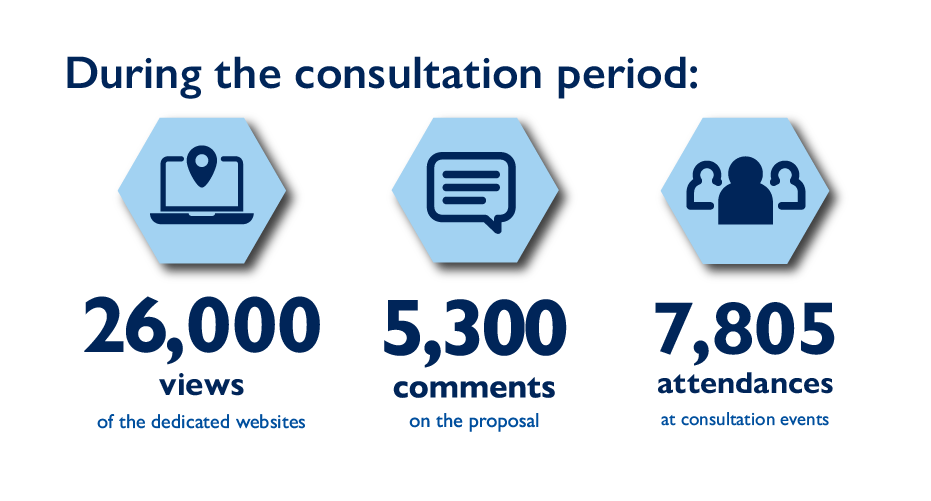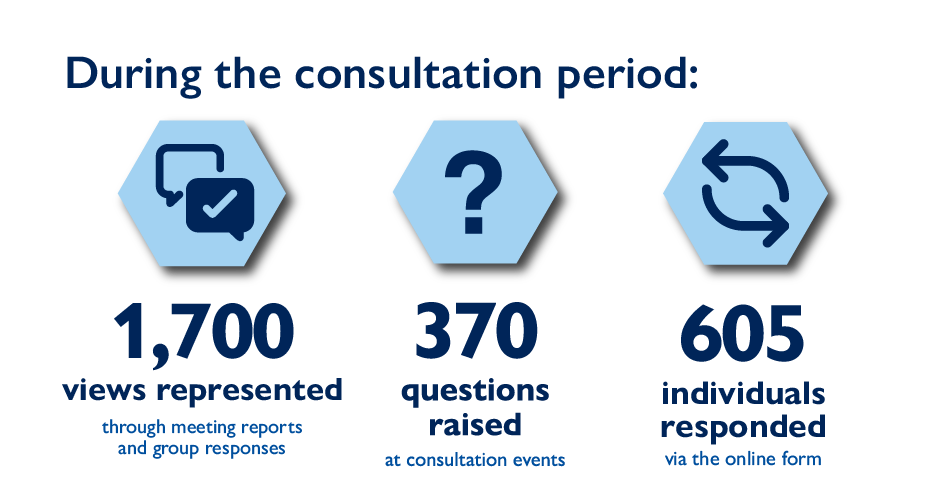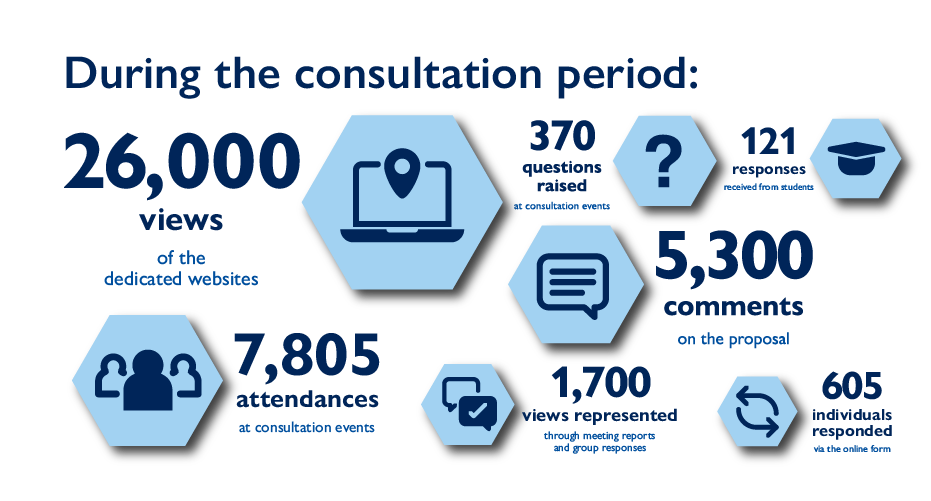Why change?
Strategy 2030 sets out our bold and inspiring vision to use the power of our education and research, to lead progress towards a sustainable, healthy and socially just future through our people, place and partnerships. The world faces very serious challenges and we intend to play our part by reframing the University to focus even more on our significant strengths and expertise in environment and sustainability, social justice and health and wellbeing in ways that are ambitious and clear, internally and externally. A brief overview of the change proposal is also covered in our Executive Summary
Key drivers of change
- The University has almost doubled in size over the past ten years with staff numbers growing from around 3,000 to 5,000, students from 16,500 to 30,000, research income from £38M to £93M and turnover from £246M to £502M.
- We must become more agile and entrepreneurial and improve student and staff experience. We heard from our colleagues and students that our structures have not kept pace with how the University has changed. They now obscure our purpose and priorities; hinder interdisciplinary working; and lead to administrative burden and duplication of governance.
- We consulted national and international opinion leaders who signalled that more substantial units will be needed to drive discovery, insight, and solutions and to prepare the leaders of tomorrow while weathering any changes to the funding and policy environment.
After considering these factors, the University Executive Board, with engagement from experienced senior colleagues across all colleges, concluded that the academic and professional services structures that served us so well over the last decade need to evolve to help us deliver Strategy 2030. You can Consultation Report highlighting the feedback received and the rationale for any decisions made as a result.
By making these changes now, we will be able to drive forward the new strategy, with more clarity of purpose as the World resets following the COVID-19 pandemic.
What are we trying to achieve?
By making changes to the way our academic and professional services structures are organised, we aim to create:
- A simpler structure focused on our three strategic goals (Environmental Sustainability, Health and Social Justice), improving interdisciplinary opportunities for colleagues and students and improving our global reputation
- Empowered academic departments with clearer accountability and local decision-making leading to a more inclusive learning community, a better student experience and vibrant research culture
- Fewer departments enabling us to bring professional services support closer to our academic and learning communities with improvements to our students’ and colleagues’ experience as a result.
The Big Conversation identified a range of issues that were causing dissatisfaction amongst colleagues and students. We are committed to building the foundations on which to resolve many of these, which should result in positive differences to the day-to-day working lives and careers of colleagues at all levels within the institution, as well as to the experience of students.
What is the benefit?
This approach builds on our academic strengths, improving resilience, enabling more local ownership and delivery, enhancing agility, encouraging even more interdisciplinarity, and providing ownership for driving our strategic goals. It signals a new framework for wider operational and culture change to bring people together to face the big societal and global challenges of our time.
Benefits for colleagues include:
- Academic colleagues will be better supported to do their jobs, with closer professional services, locally available investment, engaged line management and less time spent on complex processes.
- Academic departments will have embedded professional services department managers to support their activities and ambitions.
- There will be more opportunities for colleagues to influence and contribute to decision making.
- There will be even more opportunities for colleagues to partner and collaborate across the University and to lead projects that enhance career development and increase leadership opportunities.
- Professional services colleagues will have to navigate fewer structures and will be expected to grow their knowledge and expertise of academic groups and build longer-term relationships.
Benefits for students include:
- Creating cross disciplinary programmes working in collaboration to address the wants of ‘fairer, greener, healthier’ focused generations.
- An even better student experience delivered by colleagues who have the capacity and resources to support student needs.
- Streamlined systems and processes making the University easier to navigate with important services and information located closer to where students need them.
- More opportunities for working across disciplinary boundaries, by more easily undertaking cross-faculty and cross-university programmes with exposure to wider ranges of methodologies, facilities and experiences that will equip students for future careers.
- A stronger research culture which will enable research students to gain greater interdisciplinary experiences including shared PhD programmes.
Institutional-level benefits include:
- A stronger focus on the institutional strategy’s key themes with investment in larger, coherent groups with the power to shape their own destiny within University frameworks.
- Enhanced ability to grow and diversify research investment and funding.
- Ability to rapidly innovate in education and deliver a better student experience.
- Improved standing, political influence and reputation of ‘University of Exeter, Cornwall’, giving Cornwall a distinctive offer and clearer identity.
- More sustainable units giving more stability and flex to respond to external challenges.
- Leaner structures and broader spans of control, reduced governance overhead and duplication in business planning and strategy and streamlined processes leading to improved efficiency and improved staff wellbeing.
- Breaking down remaining barriers to interdisciplinarity, agility and creativity.
- Developing better cultures that support wellbeing and inclusion.
How will the success of the reorganisation be measured and evaluated?
We are looking for benefits around two main themes of activity: firstly the successful management of the change process; and secondly the outcomes and impacts of the reorganisation.
The change process
Success will be measured through:
- Levels and quality of engagement of trade unions, students’ unions, colleagues, students and other key stakeholders;
- Views of trade unions, colleagues and students on the change process;
- Levels of general colleague satisfaction following the change process;
- Whether the programme has been delivered on time.
Outcomes and impacts of the re-organisation
Success will be measured across the 2030 timeline through:
- Development of measures to support supportive cultures, addressing our values (e.g. a new Culture Index);
- Improved student satisfaction (NSS), educational gain and employment outcomes;
- Stronger reputation and league table position;
- Improved income generation via student recruitment and interdisciplinary research and education;
- Improved colleague engagement, recruitment, reward and retention (inc. reducing pay gaps);
- Time and costs saved on governance;
- Increased investment in student and staff-facing roles enabled by reduced expenditure on senior leadership roles;
- More bottom-up ideas from colleagues and students being implemented; and
- Increased net income for reinvestment in University priorities.



